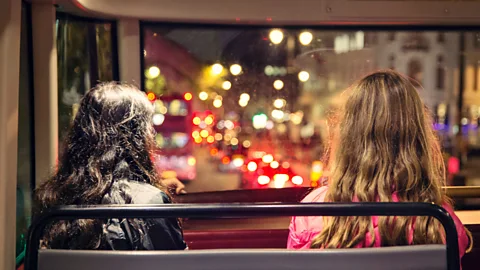Why talking to strangers can make us smarter
 Getty Images
Getty ImagesIn a suspicious world, many of us are reluctant to interact with strangers. But talking to people we've never met before, even in ing interactions, can make us wiser and happier.
Like many people who grew up in America in the 1980s, I was raised to fear strangers.
"Stranger Danger" was all the rage in those days. Parental concern and humanity's natural wariness towards strangers were supercharged by sensationalist media coverage and plummeting levels of social trust, which bloomed into a full-on moral panic.
Police officers, teachers, parents, religious leaders, politicians, media personalities, and child welfare organisations set aside their differences and worked together to spread the message – that interacting with a stranger could be putting them at risk.
While there is no doubt that some people do have traumatic experiences with strangers, "stranger danger" lacked any real statistical basis. Then, as now, the majority of sexual and violent crimes against children (and adults, for that matter) are committed by people known to the victim: relatives, neighbours and family friends. Abductions by non-family – which include those where a child is taken by someone unknown to them – for just 1% of the missing children cases reported to the National Center for Missing and Exploited Children in the US.
But, it felt real, and therefore it was real. Stranger rhymed with danger, and the pair became inextricably linked.
Could this way of thinking, however, have affected our interactions in later life for many of us? Have we missed out on something valuable?
You might also like:
Some social scientists believe teaching kids that literally everyone in the world they hadn't met is dangerous may have been actively harmful. The political scientist Dietlind Stolle, from McGill University in Canada, argued that decades of this messaging may have damaged a whole generation's ability to trust other people. This is problematic – trust being key to the functioning of many societies.
"How many social or economic opportunities do we miss by simply being afraid of strangers">window._taboola = window._taboola || []; _taboola.push({ mode: 'alternating-thumbnails-a', container: 'taboola-below-article', placement: 'Below Article', target_type: 'mix' });
